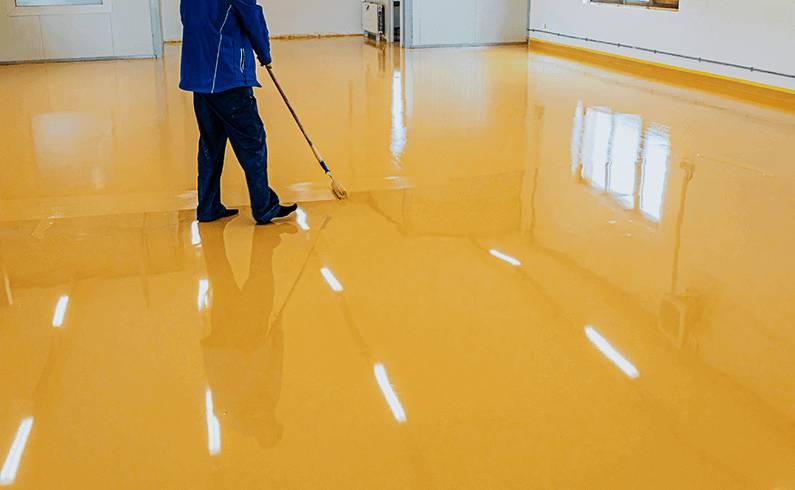Introduction
When it comes to flooring, many homeowners and business owners focus on aesthetics—color, style, and texture. While these elements are important, one aspect that often gets overlooked is floor levelling. A properly leveled floor is crucial for ensuring the longevity and durability of your flooring. This article will explore why floor leveling is essential for maintaining beautiful, long-lasting floors in your home or workplace.
Understanding Floor Leveling
Floor leveling involves adjusting the surface of a floor to create a smooth and even plane. This process can be performed on various flooring types, including concrete, wood, and tile. It is essential for correcting any imperfections, such as bumps, dips, or uneven surfaces that can lead to various problems over time. Leveling your floor not only enhances the look of your space but also contributes to the overall performance of your flooring.
The Impact of Uneven Floors
You might be wondering, "Why should I care about an uneven floor?" Here are several reasons why addressing this issue is crucial:
-
Increased Wear and Tear: Uneven floors can cause excessive wear on flooring materials. For example, if you have tile flooring, an uneven base can lead to cracks or chips in the tiles, requiring costly repairs or replacements.
-
Inconsistent Weight Distribution: If your flooring isn’t level, it can lead to uneven weight distribution. This imbalance can cause structural issues over time, leading to sagging floors, warped materials, and even damage to the building's foundation.
-
Compromised Safety: Slips and falls are common hazards associated with uneven floors. An uneven surface can create trip hazards, making it especially dangerous in high-traffic areas. Proper floor leveling can enhance safety and prevent accidents.
-
Difficult Installation: If you plan to install new flooring, an uneven surface can complicate the process. Many flooring materials, such as laminate or hardwood, require a level base for proper installation. If the subfloor isn’t leveled, you may encounter issues during installation, leading to additional costs and delays.
Benefits of Floor Leveling
Now that we've established the importance of addressing uneven floors, let’s look at the benefits of floor leveling:
-
Enhanced Aesthetics: A level floor provides a clean and polished appearance, making your space more visually appealing. Whether you’re designing a cozy home or a professional office, a smooth floor creates an inviting atmosphere.
-
Improved Longevity: Proper floor leveling significantly extends the lifespan of your flooring. By preventing damage from uneven surfaces, you can save money in the long run on repairs and replacements. A well-leveled floor can last for decades with minimal maintenance.
-
Better Comfort: Walking on an uneven floor can be uncomfortable and even painful over time. Leveling your floors creates a more comfortable surface for walking, standing, and working. This is especially important in areas where you spend a lot of time, such as kitchens and living rooms.
-
Ease of Maintenance: Level floors are easier to clean and maintain. Dust and dirt are less likely to accumulate in cracks and crevices, making your cleaning routine simpler. This ease of maintenance contributes to a healthier living or working environment.
When to Consider Floor Leveling
There are several scenarios in which you should consider floor leveling:
- Before Installing New Flooring: If you're planning to install new flooring, ensure your subfloor is level. This is especially crucial for laminate, hardwood, or tile installations.
- After Water Damage: If your floors have been affected by water damage, leveling is essential. Water can warp and damage flooring materials, leading to uneven surfaces.
- In Older Homes: Many older homes have settled over time, leading to uneven floors. If you notice sloping or uneven areas, it’s a good idea to address the issue with leveling.
The Floor Leveling Process
If you’re convinced of the importance of floor leveling, you might be wondering how it’s done. The process can vary depending on the type of flooring and the extent of the unevenness, but here’s a general overview:
-
Assessment: A professional will assess your floors to determine the level of unevenness and the best method for correction.
-
Preparation: This involves removing any existing flooring, cleaning the surface, and ensuring the area is free of debris.
-
Leveling Compound Application: A leveling compound is mixed and poured onto the floor. This compound fills in dips and low spots, creating a smooth surface.
-
Curing: The leveling compound needs time to cure and dry completely. This process can take several hours or even a day, depending on the product used.
-
Final Inspection: Once the compound is dry, a final inspection is conducted to ensure the surface is perfectly level before installing the new flooring.
Conclusion
Floor leveling may not be the first thing that comes to mind when planning a flooring project, but it is undoubtedly one of the most critical steps for achieving long-lasting results. By addressing uneven surfaces, you can enhance the aesthetic appeal, longevity, comfort, and safety of your floors. Investing in floor leveling is an investment in the overall quality of your home or business.
If you're ready to elevate your space, consider consulting a professional for your floor leveling needs. With the right approach, you can enjoy beautiful, durable, and safe floors for years to come!



